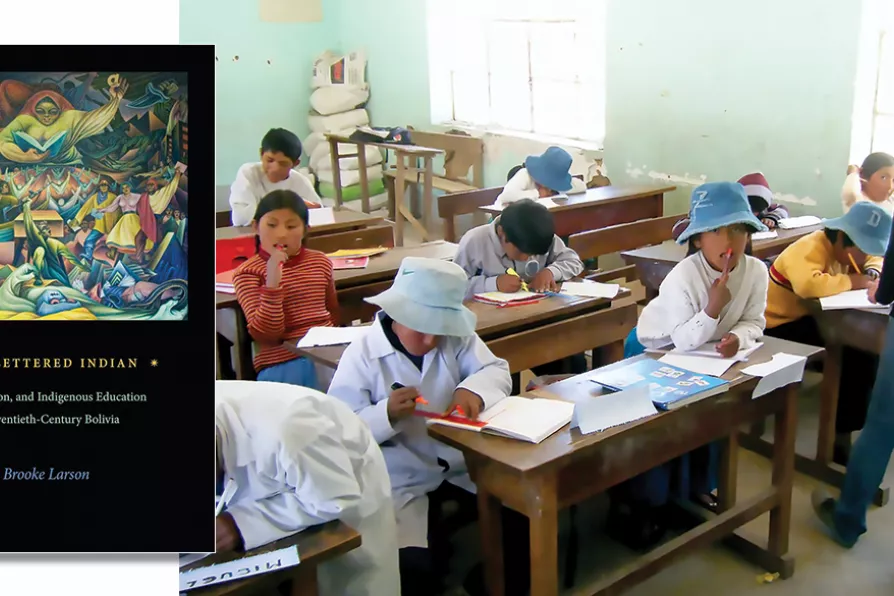The Bard stands with the Reformers of Peterloo, and their shared genius in teaching history with music and song

 School lesson in Challa, a village on Isla del Sol, on the banks of Lake Titicaca
[Lukas Sieber/flickr/CC]
School lesson in Challa, a village on Isla del Sol, on the banks of Lake Titicaca
[Lukas Sieber/flickr/CC]
The Lettered Indian: Race, Nation, and Indigenous Education in Twentieth-Century Bolivia
by Brooke Larson
Duke University Press, £25.99
THE US-backed right-wing coup against Evo Morales in Bolivia in 2019 and the violent turmoil fanned by the white elite that both predated and followed it demonstrated above all else that, for this country’s Indigenous majority, there is much unfinished business.
Jeanine Anez, the usurper who, with the support of the military, all but installed herself — now jailed for her political crimes and facing genocide charges — epitomises the racism at the heart of the imperial legacy, wont as she is to describe Bolivia’s Indigenous majority as “savages.”
No matter where you stand on mistakes made by Morales’s Movement for Socialism (MAS), to a large extent the coup represented a white, racist reaction to the prospect of the country’s first Indigenous president of Bolivia remaining in power after 13 years.

1943-2025: How one man’s unfinished work reveals the lethal lie of ‘colour-blind’ medicine

On the centenary of the birth of the anti-colonial thinker and activist Frantz Fanon, JENNY FARRELL assesses his enduring influence












